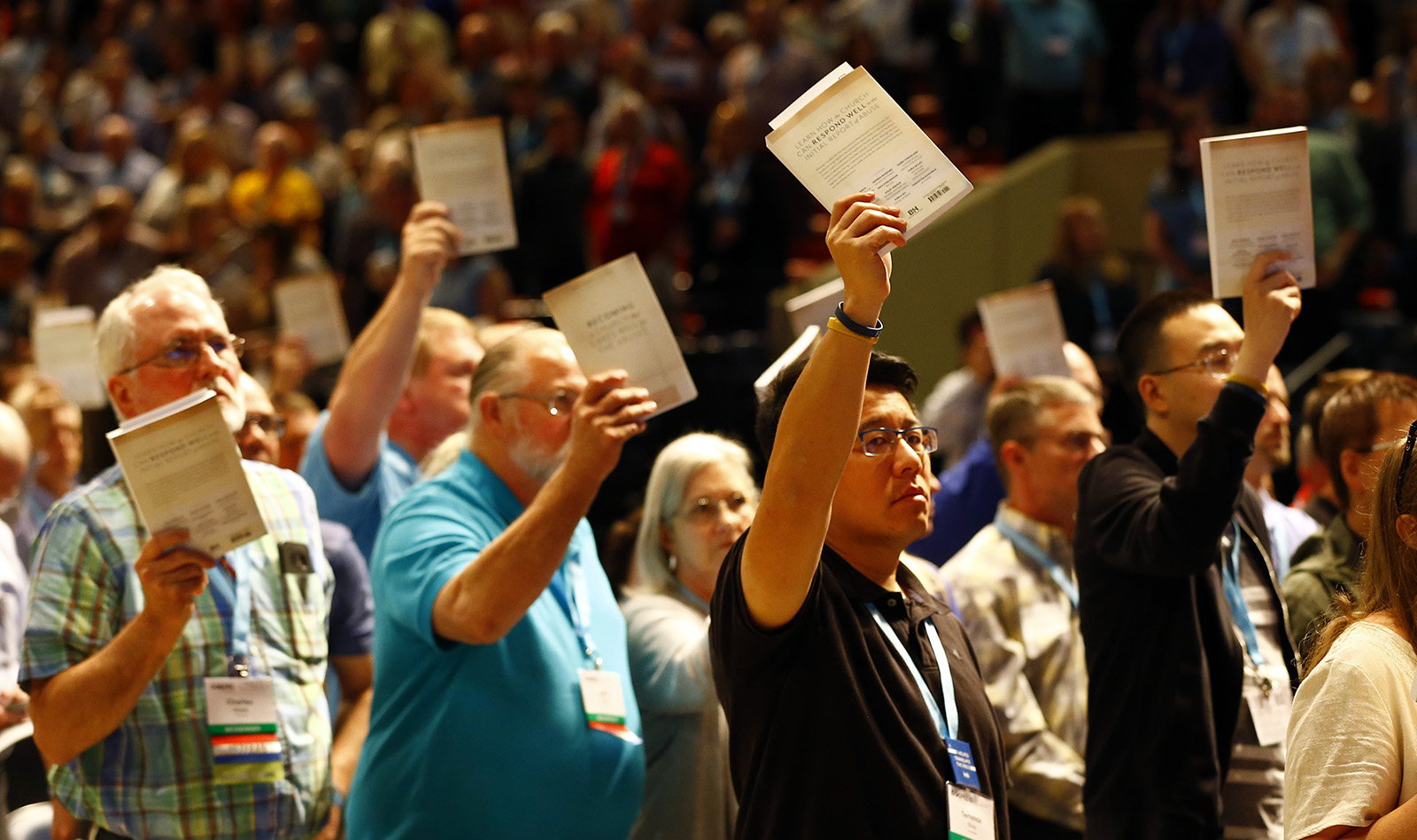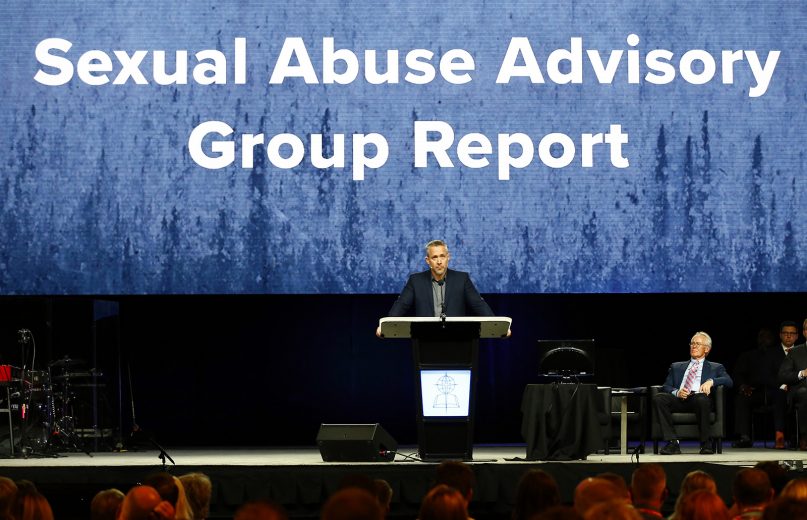
(RNS) — Earlier this month, Robert Oscar Lopez, a professor at Southwestern Baptist Theological Seminary, released a statement announcing his own firing, which he attributed to the SWBTS administration’s dissatisfaction with his vocal opposition to sexual abuse within the Southern Baptist Convention, specifically abuse of men by male pastors and other church officials.
Lopez’s allegation is unlikely, and only gets more unlikely as you listen to his theories about the SBC’s supposed capitulation to the idea that same-sex attraction is innate, or that he was done in by a conspiracy between the LGBTQ community and the SBC. In his mind, it was his own hard line on homosexuality — which he believes is caused by trauma or indoctrination — that provided further grounds for dismissal.
Randy Stinson, the SWBTS provost — himself an advocate for a conservative view of human sexuality — was being charitable in my view when he called Lopez’s statements regarding the reasons for his termination as “demonstrably false.” Instead, Stinson said, “Lopez’s position is being eliminated due to changing program needs” and other personnel matters.
But amid his outlandish claims, Lopez is right that the SBC needs to be more accountable about same-sex abuse. In the sexual abuse crisis first rumored, then blown open earlier this year by an extensive investigation by the Houston Chronicle, very few cases of same-sex abuse have been uncovered within the denomination. Bart Barber, a SWBTS trustee, pointed out this issue in a tweet:
Statistically speaking, unless there's some unknown significant factor to explain a wide discrepancy, we should have witnessed a significant number of male victims of sexual abuse coming forward in the SBC. It hasn't happened.
— Bart Barber (@bartbarber) November 13, 2019
In a following tweet, Barber said, “But in our responses to the abuse problem, I think we’re foolish and negligent if we act as though they aren’t out there. They need help, too.”
The sexual abuse advocate Christa Brown has also raised the alarm regarding same-sex abuse in the SBC. She relates the story of two men who were allegedly abused by the same Louisiana Baptist music minister. When one of the two men sought help from the convention, an SBC official, the victim said, “spent more time trying to show the error of my homosexuality than providing a listening ear.”
For Lopez, the lack of same-sex abuse being reported in the convention is related first to the SBC’s fiercely held position on same-sex marriage. In his view, the SBC “just wants the cover-up” so it doesn’t have to confront the real issue: that its position on same-sex marriage doesn’t go far enough in rooting out homosexuality from its pews.

Southern Baptist Convention President J.D. Greear speaks on sexual abuse during the SBC’s annual meeting at the Birmingham-Jefferson Convention Complex on June 12, 2019, in Birmingham, Alabama. RNS photo by Butch Dill
More likely, homosexuality is such a bogeyman in a denomination noted for its eight-year boycott of Disney for “promotion of a gay agenda” that any mention of same-sex sexual contact is rife with enough shame and stigma to prevent reporting of same-sex abuse.
It’s time to get over ourselves. Instead of virtue-signaling to those in our camp the staunchness of our disapproval of homosexuality, the SBC should demonstrate our desire to follow Jesus in caring for the oppressed. Our love for our fellow humans should surpass our hatred of anything we are against.
To be quite clear, I, like Stinson and Lopez, affirm the Baptist Faith and Message 2000 view of biblical sexuality that we think is evident from a plain reading of the Bible: Sex is intended between one man and one woman in a lifelong marriage. But if an alcoholic comes to dinner, I don’t say, “Just so you know, I think getting drunk is a sin.” My alcoholic friend already knows how I feel.
As the denomination reckons with the sexual abuse crisis, we would do well to examine how we articulate our view of human sexuality. No one needs to hear over and over again that we think they are in sin; they need to be treated as human beings made in God’s image.
In short, it’s time to stop demonizing gayness. Let’s instead focus on treating all people as humans made in God’s image, as worthy of dignity and respect as such. Let’s make it clear through our actions and our words that all trauma survivors are welcome in our churches.
If our zeal for a biblical view of sexuality outshines our desire to protect the people in our churches, something has gone very, very wrong.
(Russell L. Meek is a writer, editor and lecturer in Old Testament and Hebrew at Ohio Theological Institute. Follow him on Twitter at @russ_meek. The views expressed in this commentary do not necessarily represent those of Religion News Service.)
